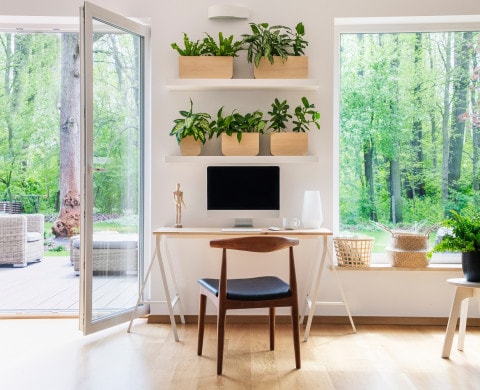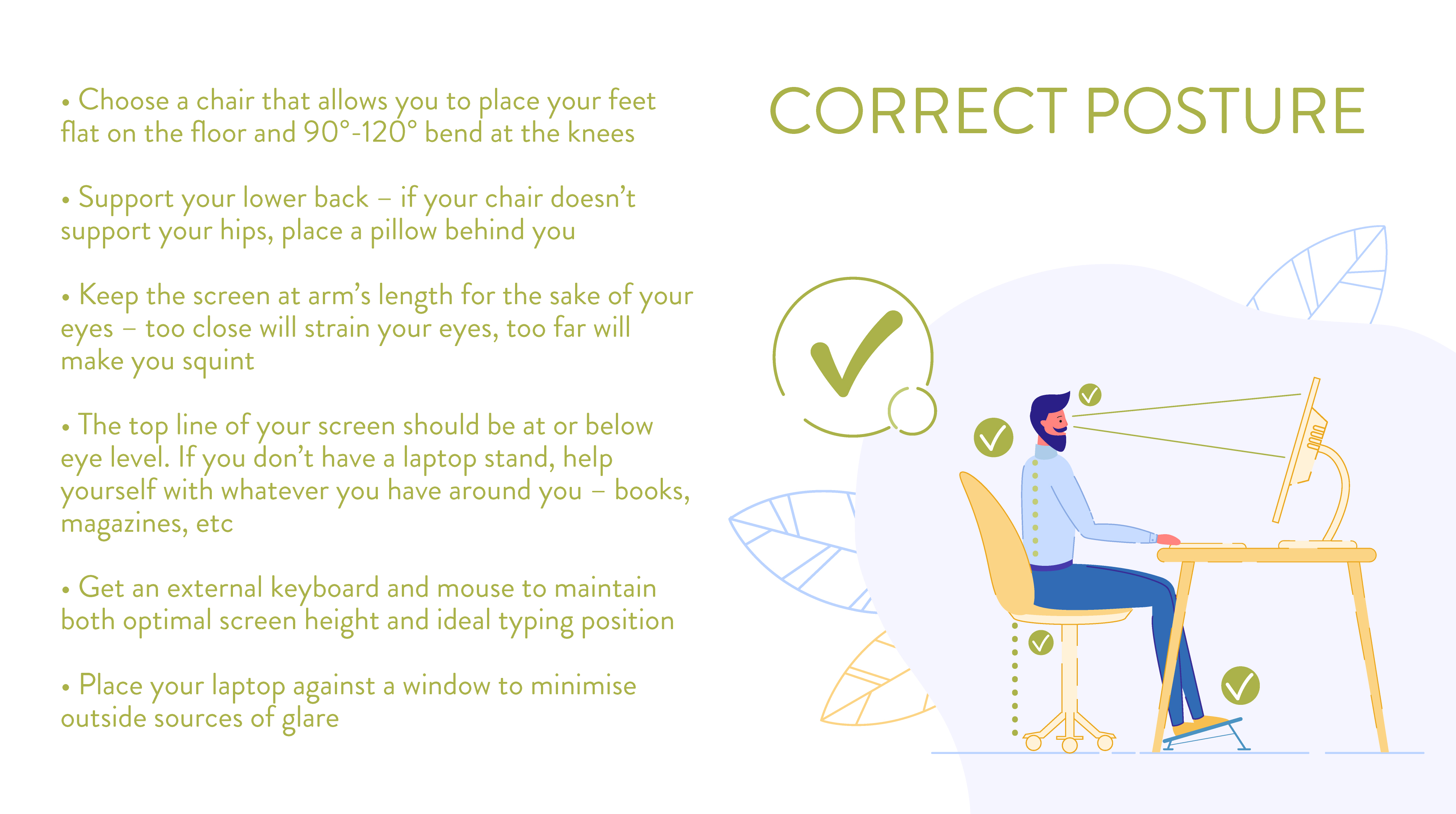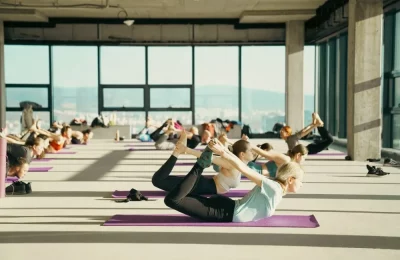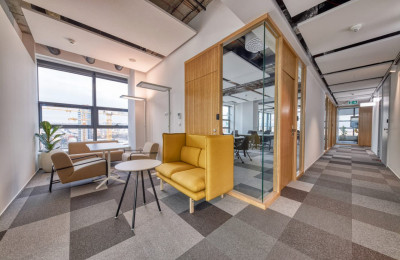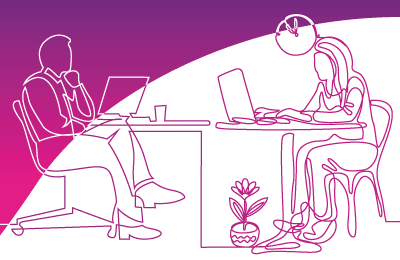10 tips for coping with a precipitous drop in performance when working from home
Are you trapped in the home office loop? There is still something you can do to keep your work performance on the track. We are here to help.
Listen to the audio version of the blog.
Do you often work from home? Or are you a first-timer? One way or another, it’s true home offices might not be an instant match for everyone, but it’s worth giving them a chance.
Working from home is quite different from working in our usual workspaces, if you are prone to get stuck in one place, some things are worth keeping on your agenda even when working from home.
As an international workspace provider, we are all about top-notch solutions and hacks when it comes to office wellbeing and productivity. And we would like to share what we know about home office organisation to increase your productivity and improve your mental health.
Try these 10 tips to maintain your health and improve concentration while working from home:
1.Don’t give up on your day structure
Can’t concentrate on work? This might sound banal at first, but have you kept the same routine since you started working from home? Do you wake up at the same time every day? Do you take a shower first or have you switched it for a different activity?
Sure, you can adjust the order here and there, but make sure to be structured. This way, the day will move from one activity to another and will give you a sense of development.
In the evening, plan your work for tomorrow. If you anticipate a particularly challenging task, allocate it to your most productive phase of the day.
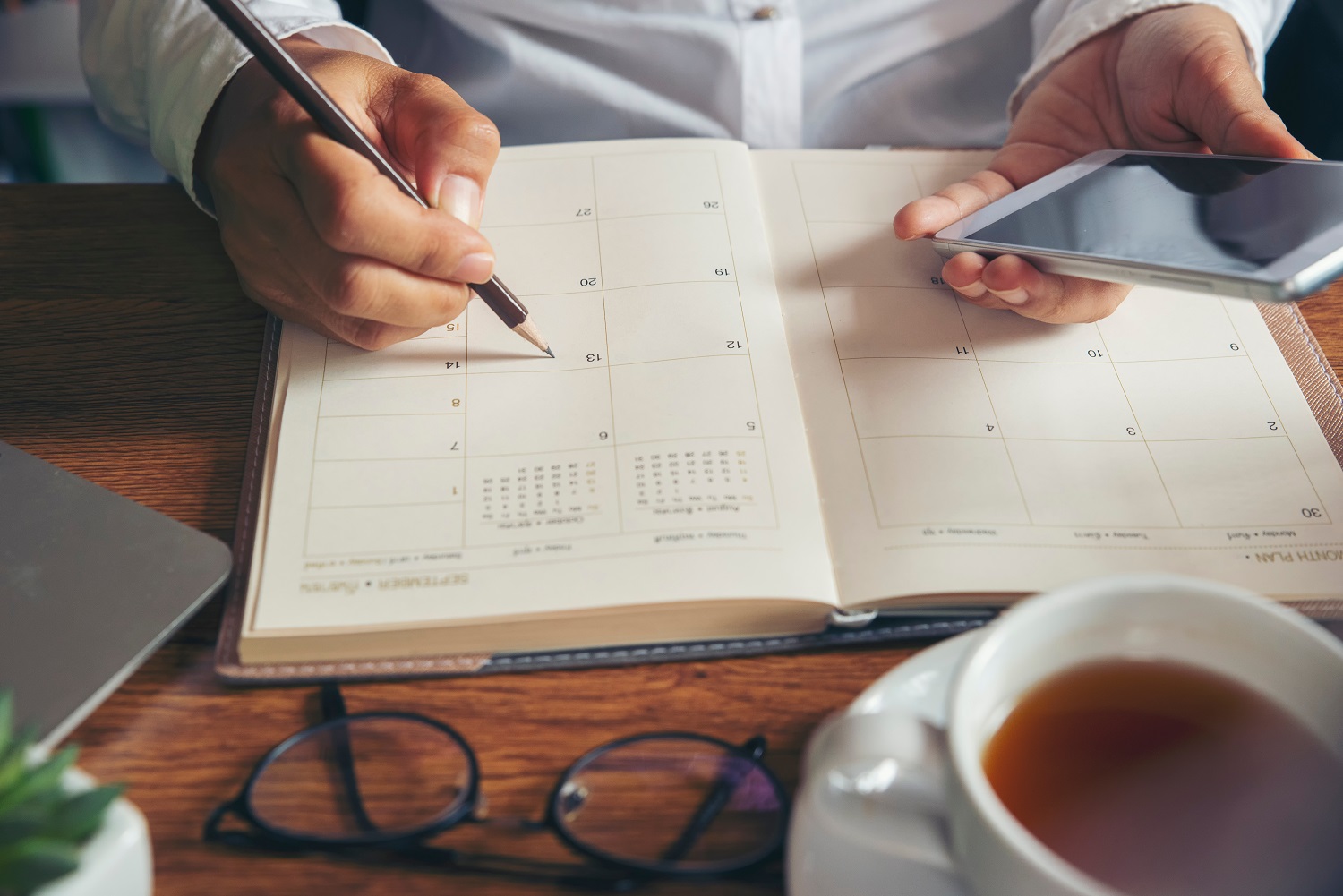
2. Separate your working and personal time
Now that you are working at home, there is no physical distance you must overcome to reach your workspace. By commuting, your mind is getting ready for working mode. Now, it might be challenging to keep private and working time apart.
If thinking about work stresses you out, set fixed working hours for yourself. If you share a household with your loved ones, set an hour or two during the day for time spent together, so it doesn’t get too lonely for you all.
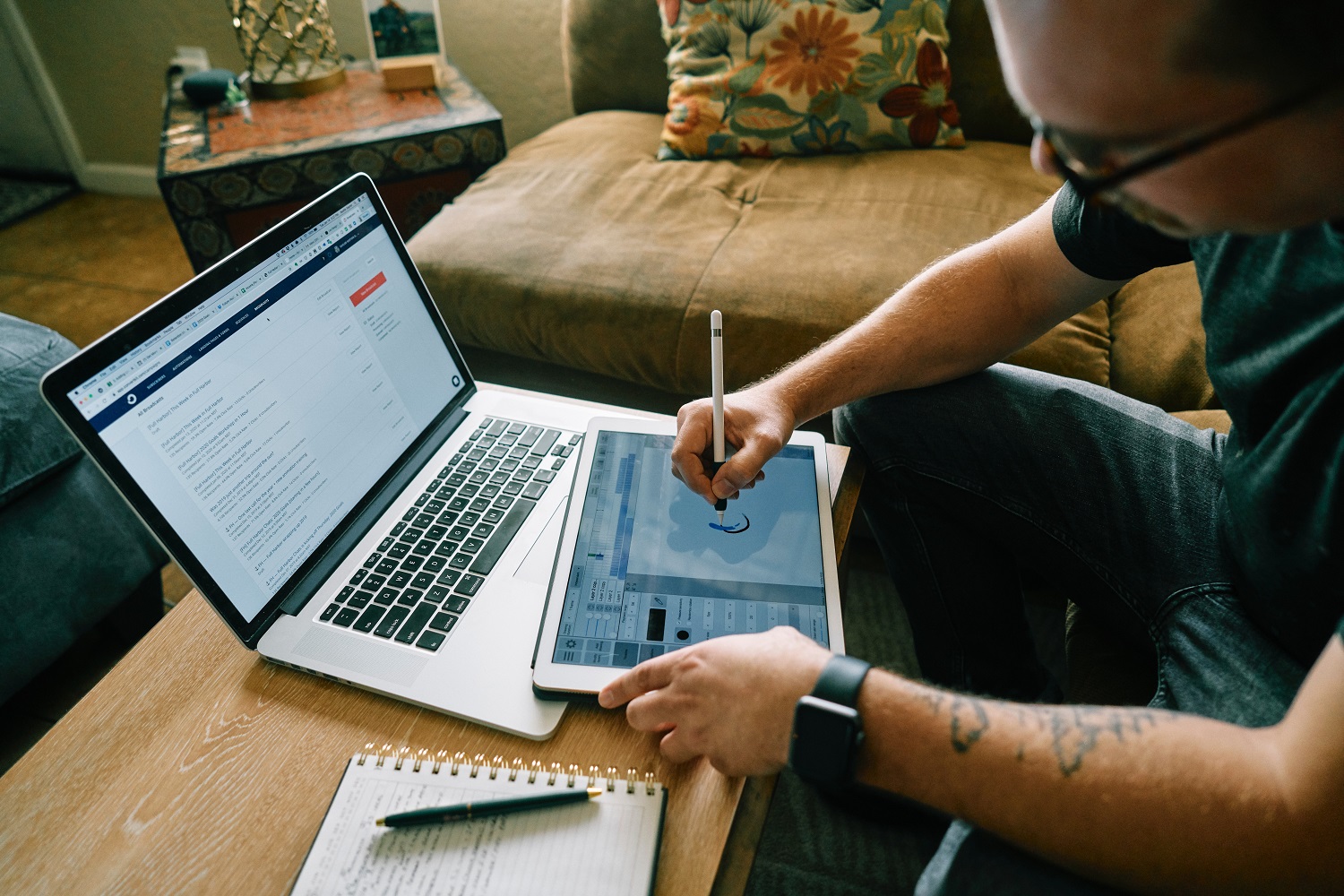
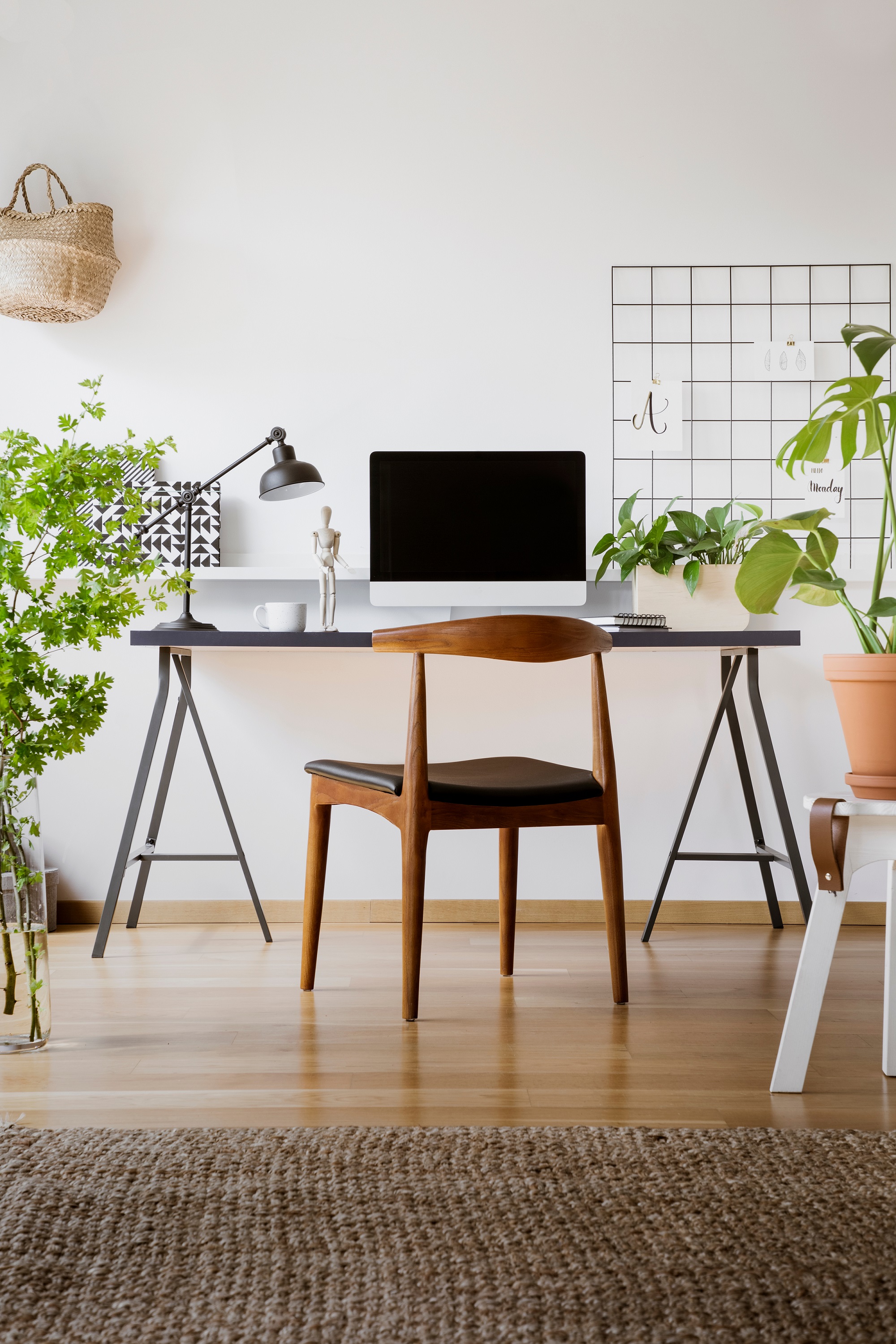 3. Surround yourself with natural elements
3. Surround yourself with natural elements
No, we are not joking. Having access to greenery contributes greatly to stress level reduction. People report a 15% rise in their perceived wellbeing and work productivity compared to those with no natural elements in their proximity. Some plants are great air purifiers, check them out on our blog.
However, biophilia is not just about plants. It can be any of the following:
- Music with biophilic tones, such as a stream running across the country, birds singing, bees buzzing etc.
- Natural materials
- Patterns mimicking the shapes found in nature, such as waves, leaves, etc
- An aquarium with fish
Now that you are familiar with biophilic elements, stop for a moment. Look around your home. Did you find anything that could be considered biophilic? If yes, put it in your working zone to improve your mental health.
4. Activate your sitting position
And now we would like to show you how to sit. Right, you know how to do that. But we bet nobody taught you at school how to correct your sitting posture to a healthy one.
Most of us, people from offices, spend our days sitting. The luckier ones have adjustable tables or different workspace types to switch to during the day. For many, it’s probably a different story at home. However, the environment is one thing, core position is another. Thus, let’s find the ideal sitting position.
Sit in an upright position, with your legs down and monitor at the same height as your eyes. Don’t have a laptop stand? No worries, books or a pile of old magazines will do the trick! Try the following rules for a healthy sit-down, which can bring your sitting habits to a new dimension:
We know laying down with your laptop might be tempting, as it’s not what we can usually do at work. But it’s definitely not good for your neck and back. Beware of it. Indefinitely.
5. Take breaks regularly
It may be easier to get into the flow when no colleagues are around but don’t forget to take breaks from work. We even suggest you plan them ahead of time. After every 60 to 90 minutes of focused work, take a short break. Off-screen break. Yes, that rules out your smartphone too.
How long should they be? Short breaks should be 5 to 15 minutes of different, non-work-related activity. Check the list of inspiration for break activities. After 2-4 hours of working, take an extended break of at least 30 minutes.
Try some of these break ideas:
- Stretch your body
- Walk a little around your house, or take the trash out
- Eat some fruits or treat yourself to a smoothie – your brain runs on glucose
- Read a book/magazine
- Drink a cup of tea/coffee
- Check-in with your family, friends, or even a colleague
- Little domestic tasks such as filling washing machine or washing your dishes or watering plants
- Play some music or an instrument
- Meditate
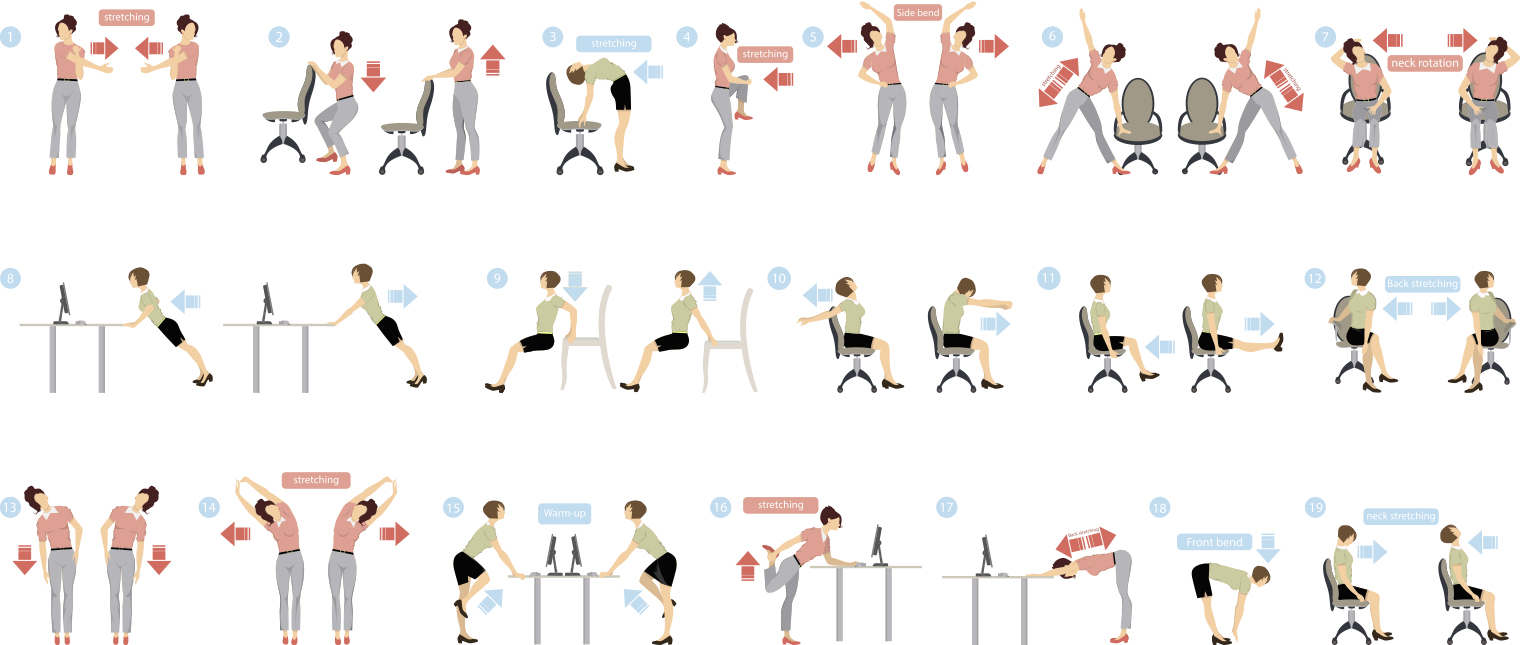
6. Let some fresh air in
Fresh air is essential for your brain and productivity. Our homes usually allow for natural ventilation as simple as opening a window.
7. Initiate your creativity with art
It’s a cycle: we create art and art stimulates the swirl of creativity back. Decorate your home office and work with your favourite piece of art in view. The art doesn’t need to be a masterpiece from a famous artist, it can be your favourite print version of the painting, a poster an illustration on a mug, a painted can, or even your own craft pieces. Art is subjective and inclusive.
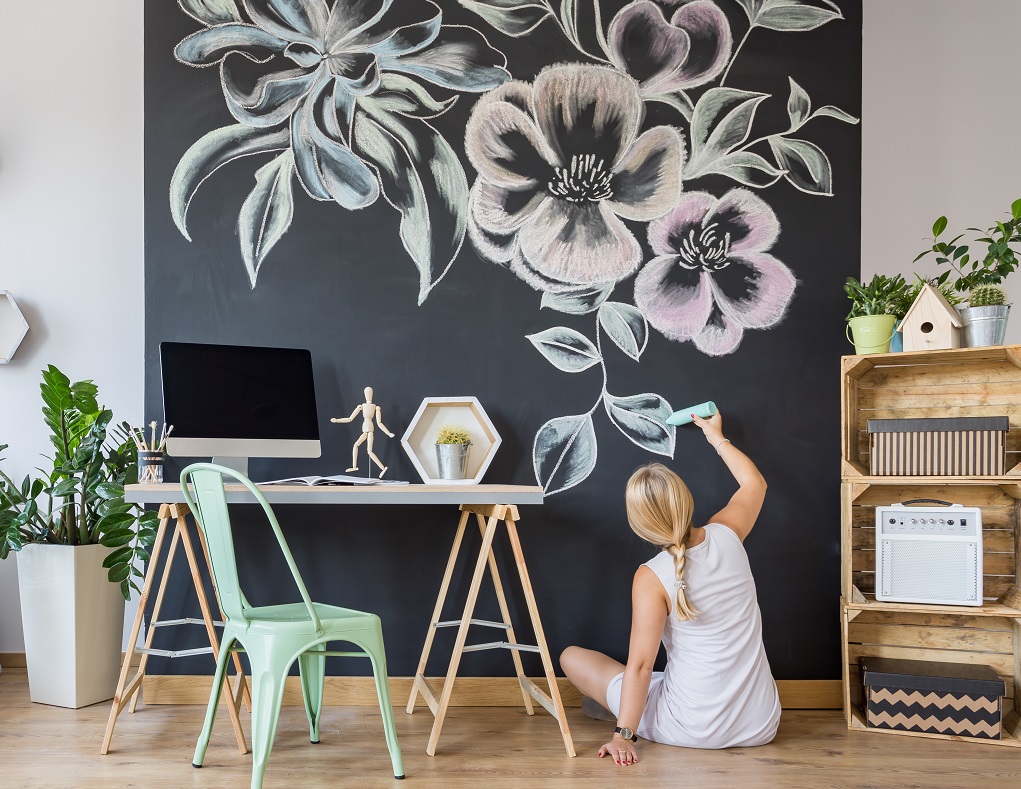
8. Be picky about the music you listen to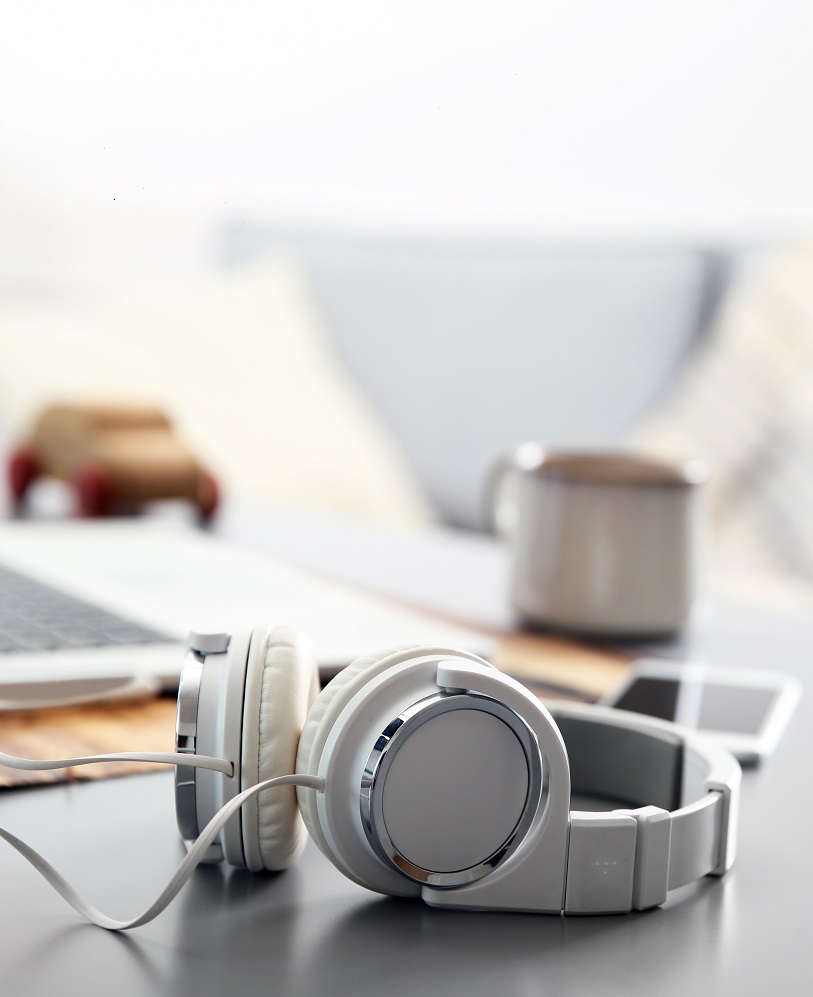
Take it easy with music – whilst it can be a pleasant companion, it can encroach on your working memory and attention, especially when reading or writing. We have prepared a set of soundscapes, each of them devoted to supporting different efforts: focus, deep concentration, creativity and relaxation e.g. breathing exercises. Listen to them here.
9. Soak in the daylight
Sitting in beams of daylight can actively stop the stress levels from flying high. Also, it helps to maintain your body clock regulating your sleep cycle. Thus, allow yourself to indulge in as much natural light as you can. However, think of glare prevention too, and place your laptop screen against a window.
At sunset and evening minimise blue light emitted by your screens and mobile phones by using warm light filters, so it doesn’t keep you alert and mess up your ability to fall asleep.
10. Catch up on sleep
Sleep deprivation is so widespread today that we have all gotten used to it. We even brag about how much we work instead of sleeping.
But sleeping less than 7 high-quality hours a night has a terrible effect on our mental and physical health, as well as our performance. If we sleep less, our brain and cells cannot fully recover, which shows up in its long-term effects.
So, let’s get to know what the right amount of sleep is for you – it’s worth knowing. In our blog on sleep, you can find out how to improve your sleeping habits.

